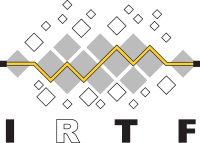Goal
The goal of the Systems and Protocol Adaptations for Circumstellar Environments Research Group (SPACE RG) is to explore and investigate research questions related to architecture, protocol design, manageability considerations, and approaches to operationalize several categories of non-terrestrial networks.
Scope
Specifically, the research group focuses on networking among potentially heterogeneous nodes (by node type, administration, operator, among others) with highly dynamic connectivity imposed by their non-terrestrial deployment environment. This includes satellites in Low, Medium, and Geostationary orbits (LEO, MEO, GEO), as well as platforms in other trajectories – cislunar and beyond – and their interplay with terrestrial infrastructure on the ground and airborne as providers and users of network connectivity. For brevity, these are collectively referred to below as “space networks”.
Background
Space networks feature several challenging properties that may impact all layers of the networking protocol stack, often in ways that contrast sharply with the assumptions underlying terrestrial networks. These challenges have numerous technical root causes, including:
- Mobility and Topology Dynamics: High-speed movement, predictable and opportunistic links, frequent topology partitions orlink disruptions.
- Environmental and Resource Constraints: Atmospheric disturbances, limited energy, thermal variability, constrained onboard resources.
Space networks in SPACE RG spans a vast physical scope (low-Earth orbit to deep space). However, the networking challenges share strong commonalities: high mobility, link disruptions, constrained environments, and high-cost infrastructure. Therefore, SPACE RG is in a good position to discover and catalize synergies between these different domains.
Industry and standards organizations other than IETF (CCSDS, 3GPP, among others) with different backgrounds are developing the underlying technologies; operators run today’s closed networks; and research communities (such as ACM SIGCOMM, SIGMOBILE) analyze the observable characteristics of these networks.
One focus area in the networking community has been, on the one hand, on simulation and emulation environments to explore path properties and routing protocols and, on the other hand on network measurements including analyzing continuously collected data sets (e.g., of RIPE Atlas probes), running individual experiments, and building up dedicated measurement infrastructure such as LEOscope.
Research areas
SPACERG will start from and build up on these existing initiatives, with the initial goals to
- Create a platform for an open, curated data repository that collects data sets and pointers to data sets to offer a comprehensive resource collection in a single place with suitable documentation. This could take the shape of a git repository.
- Analyze and document present evaluation methodologies, such as measurement setups, performance metrics, simulation scenarios, “test cases,” etc., to enable comparable and reproducible experiments.
- Based upon the findings from 2., devise best practices and reference scenarios for simulations and measurements. This could take the shape of a a Wiki, another shared (living) document, or an Informational RFC.
- Document and foster the development of a dedicated measurement infrastructure for space networks, such as the LEOscope.
Mode of Operation
To achieve these goals, SPACERG will:
- Meet regularly at the IETFs to support community formation and work progress.
- Reach out to the different communities (researchers, industry stakeholders, standards bodies) by inviting speakers and collaborators, and form and evolve a balanced community of contributors.
- Provide scenarios, data, and context to related IETF/IRTF groups, ensuring their work can benefit from consistent and reproducible space networking baselines.
Membership
Membership in the SPACERG is open to all interested parties.
Chairs
The SPACERG is chaired by Jörg Ott and Juan A. Fraire.
Mailing List
The SPACERG mailing list is space@irtf.org. To subscribe or access the list archives, visit the mailman page.
Datatracker
Documents and meeting materials for the SPACERG can be found on the IETF datatracker.
Timeline
The SPACERG was chartered on 2025-01-01.
